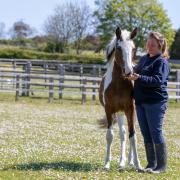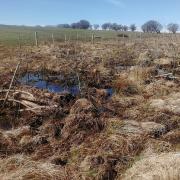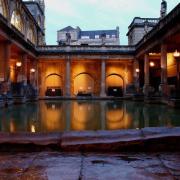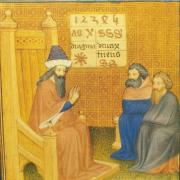For someone so famous, lauded as the ‘Father of English Literature’, Geoffrey Chaucer’s life was not always auspicious. Later in life he got into debt and held the apparently unspectacular post of Deputy Forester of the royal forest at North Petherton. There is my unlikely Somerset connection for someone more commonly associated with London or possibly Kent because of his ‘Canterbury Tales’.
A poet and son of a London tavern keeper and vintner, Chaucer clearly had something about him to be a member of the king’s household, the king himself contributing to the ransom required after Geoffrey was captured during the French wars. The king was Edward III who’d launched the Hundred Years’ War against the French. The king must have been happy as he granted Chaucer a pension in 1367 when the lad was in his early-20s. Philippa Chaucer appears at court from the following year; the poet’s wife we assume.
It was 1369 when Chaucer first commanded attention as a poet, his ‘Book of the Duchess’ mourning the death of John of Gaunt’s wife, Gaunt the third son of the king. He was frequently abroad on the king’s service or comptroller of ‘stuff’ here, had a permanent deputy by 1385, a pitcher of wine daily from the king, and a further pension from Gaunt. Life was grand. He was prolific with his writing over 1369-87 including one of his greatest works, Troilus and Cressida. His magnum opus, The Canterbury Tales, was next but first he fell upon hard times and it is to this trough we date Petherton.
Around the end of 1386 Chaucer lost his offices maybe because his benefactor, Gaunt, was overseas. He was Clerk of the King’s Works in 1389 but two years later was superseded, so I reckon Chaucer’s link with the county was c.1391. Historians debate the extent of the poet’s involvement although some believe he stayed in the Park House in today’s Parkers Field, presumably the lodge where foresters stayed. He wasn’t thrifty so had nought to fall back on, becoming deputy forester in Petherton from necessity. He gained another pension from the new king, Richard II, in 1394, but Chaucer seems to have been in debt from now on. There was one further monarch, Henry IV, ouster of Richard II and son of Gaunt, who gave Geoffrey another pension in 1399 which enabled him to enjoy his remaining time in comfort.



























